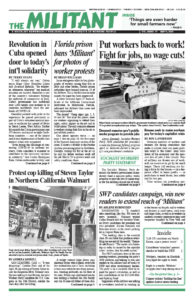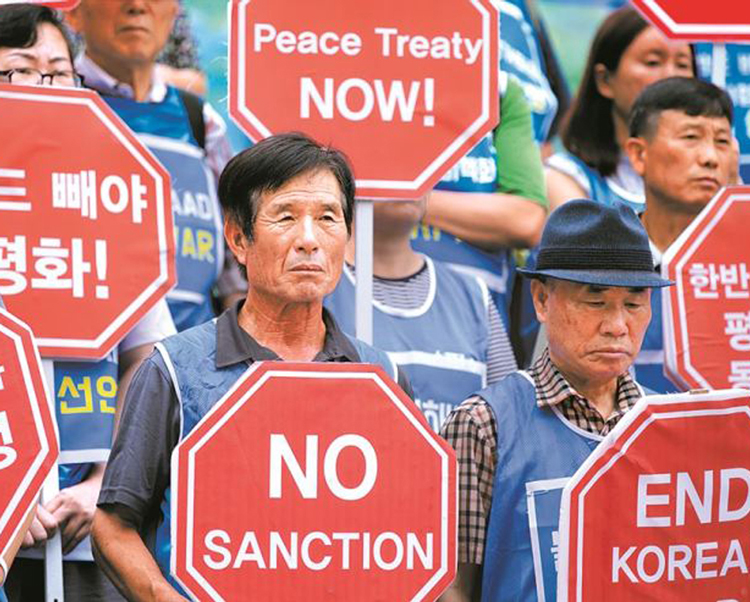Over the last month President Donald Trump and North Korean leader Kim Jong Un have reportedly exchanged “personal letters.” At stake are talks over eliminating nuclear weapons on the Korean Peninsula, an end to U.S. sanctions that fall heaviest on working people in North Korea, and a long overdue peace treaty the U.S. rulers have refused to sign since 1953.
Since Trump agreed to the first-ever U.S. government summit meeting with Kim in June 2018, the U.S. rulers have combined reducing military provocations — like large-scale joint military exercises with South Korean forces — with enforcing their punishing sanctions. Little concrete progress has been registered in talks since then, while contacts continue.
The 70-year-plus division of Korea into two separate countries was the result of the U.S. rulers’ occupation of the South at the end of the second imperialist world war. They aimed to deal blows to the revolutionary struggle waged by the Korean people for national rights, as well as land reform, women’s suffrage and the expropriation of the factories and other workplaces. During the subsequent Korean War the North Korean people successfully prevented Washington from reimposing the dictatorship of capital there. It was the first-ever military defeat for U.S. imperialism.
The U.S. rulers have over 28,000 troops stationed in South Korea, along with hundreds of tanks, artillery and warplanes, including nuclear-capable jets.
“We champion the decades-long struggle to reunify Korea, which Washington, in collusion with Moscow, brutally partitioned,” Steve Clark wrote in a message on behalf of the Socialist Workers Party to the people of the Democratic People’s Republic of Korea on the occasion of their April 15 national holiday.
The party demands, Clark writes, that the U.S. government: “Lift all sanctions against the DPRK; Live up to its pledge to halt military exercises with Seoul; End its ‘nuclear umbrella’ over South Korea and Japan” and “Sign a peace treaty ending the bloody war the US rulers waged against the DPRK from 1950 to 1953.”
“These steps would advance talks by Washington and the DPRK to end the deployment of nuclear weapons in Korea and its air and waters by any government,” Clark said. “A world without massively destructive arms is the aspiration of working people in Asia and the world over.”
Capitalist social catastrophe
Today sanctions imposed by Washington and the United Nations are making it more difficult for the government in Pyongyang to import medicines and medical equipment to use in treatment of COVID-19.
In the midst of the “social calamity of unemployment and economic depression” in the U.S. today, Clark explained SWP candidates and their supporters “are campaigning — at work, in workers’ neighborhoods, and in small towns and rural areas — for a massive public works program to provide jobs at union-scale wages.”
They “are engaged with coworkers in skirmishes and struggles in workplaces across North America, from Walmart to the railroads.
“Toilers engaged in such fights can and will be won to opposing the brutal imperialist sanctions and wars of the employing class, its political parties, and its government, as well,” Clark said. “This includes championing the Korean people’s efforts to reunify their country.”
Clark ended with, “US military forces out of Korea! For a nuclear-free Korean Peninsula! Korea is one!”


